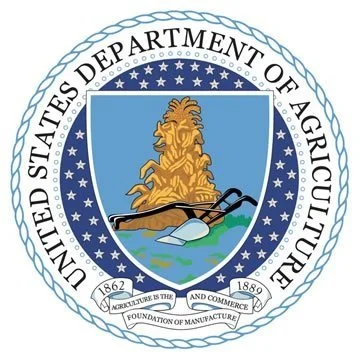As U.S. rice farmers rush to finish planting their 2024 crop, one of their largest export markets is at risk because of financial restrictions placed on banks that would normally provide dollars for U.S. rice shipments to Iraq.
Read MoreSeveral types of conventional cancer therapies, such as radiotherapy or chemotherapy, destroy healthy cells along with cancer cells. In advanced stages of cancer, tissue loss from treatments can be substantial and even fatal. Cutting-edge cancer therapies that employ nanoparticles can specifically target cancer cells, sparing healthy tissue.
Read MoreThe LSU AgCenter is Louisiana rice farmers’ MVP, or most valued partner, in research and crop variety development. From creating a new market for jasmine rice, to producing varieties of rice that are better for diabetics and more sustainable and resilient to changes in the environment, LSU has been critical to the Louisiana rice industry for more than 100 years. The research also has world-wide impact since one-fifth of the global population’s calories comes from rice.
More than 60 percent of the rice Louisiana farmers plant was developed by the LSU AgCenter, with a direct economic impact of $580 million.
Read MoreDown in southwest Louisiana we know tailgating! And cooking rice dishes such as jambalaya while getting your pregame on is a tradition. But lest you think it’s only for college football, let’s set the record straight: we can and will tailgate before lots of other sports, including baseball, and rice is always a focal point of the festivities.
Friday, April 12, was Cajun Country Rice Day at the University of Louisiana – Lafayette (UL) for the first of a three-game baseball series versus Marshall University in the Sun Belt Conference.
Read MoreOne step into a tour of the Kennedy Rice Mill in Mer Rouge called into question one cardinal rule of Cajun cooking for ladies of all ages during a Louisiana Women in Agriculture event.
“My grandma always said you needed to wash the dirt off the rice first, but I’m starting to reconsider,” one participant mused.
Read MoreMeryl Kennedy rode shotgun for farm checks, walked flooded rice fields and picked up enough lingo to keep her fluent in the unique vernacular of a Louisiana farming community. Those moments spent learning at her father Elton’s side imprinted in her a deep appreciation for overcoming the hardships of farming in the near-hostile environment of the Gulf state.
Deep down though, she knew her heart just wasn’t in the dirt. She needed the glamor of the corporate world, of meeting with investors and negotiating global deals. The complete opposite of her father’s down-home rice farming, drying and land management business - or so she thought.
Read MoreTuesday, a coalition of rice state legislators including four Senators and eight House members, led by Senator Bill Cassidy (R-LA), sent a letter to the Department of the Treasury requesting a quick resolution to financing restrictions which have prevented the Government of Iraq from procuring essentials including U.S. rice.
Iraq is the second largest market for U.S. milled long grain rice. The government of Iraq provides rations, including that rice, to 41 million Iraqis with 6 million receiving additional rations because they live below the poverty line; the total population in Iraq is approximately 45 million people.
Read MoreLast week, several families and rice industry representatives hosted the Nigerian Catholic Bishop Ernest Obodo and Father Francis Chiawa to south Louisiana rice country. The trip was organized by the Lounsberry Family, including Mrs. Yvonne Lounsberry and Michelle Deshotel, Gayla and Mark Popeck, and their son Conner Popeck. The trip was an initial visit to further explore the idea for the SWLA rice farming family to create a Farmer-to-Farmer Training Program to train Nigerians in the various trades associated with U.S. agriculture practices, with the goal of participants then being able to take these new skills and knowledge back to Nigeria and train others at Mary Agro Farms.
Read MoreMy first session of the Rice Leadership Program started with the same recipe of every alumnus I spoke to: a little anxiousness and a lot of uncertainty on how I thought I could get away from my home duties for an entire week. The fear of disappointing those who supported me to be accepted into the program and the fear of the phone call of Dr. Linscombe’s wrath encouraged me to head to Crowley in the pouring rain to meet up with my Louisianan brethren, Kane Webb, Cole Reiners, and John McLain, for the drive to Texas to teach everyone something about rice measured in barrels.
Read MoreIt's not a colorful or elegant bird, nor does it sing anything that could be described as pleasant. Its feathers are drab. Its beak droopy, and its long-legged gait is so gimpy that it was cursed with one of the most disparaging names in all of birddom: the limpkin.
And yet the limpkin’s first appearance in Louisiana a few years ago was cause for celebration. That’s because this gangly, shrieking bird from Florida is the mortal enemy of a foreign snail that’s been wreaking havoc in Louisiana’s farms and wetlands.
Read MoreHerbicide-resistant weedy rice significantly impacts yield potential, and the pressure intensifies in problem fields placed in continuous rice rotations. With limited technology to combat weedy rice, many farmers turn to Acetyl-CoA carboxylase (ACCase) chemistries, like the Max-Ace Cropping Solution or Provisia Rice System, as their only options.
Read MoreEmma Stelly, a McNeese State University freshman who grew up on a family farm in Vermilion Parish, has been selected to complete an internship at the LSU AgCenter H. Rouse Caffey Rice Research Station this summer.
Read MoreThe rice industry has been trying for years to prevent products made from riced or crumbled vegetables from being labeled as rice and even from being displayed in the same supermarket aisle as rice products. The industry has scored a few wins.
“We’ve said from the beginning, rice is a grain, not a shape,” says Robbie Trahan, Louisiana rice miller who chairs USA Rice’s Domestic Promotion Committee. If someone wants to eat cauliflower crumbles, that’s fine. But don’t call it rice. It isn’t.”
Read MoreAccording to Dow Jones' survey of market analysts, USDA is expected to announce 92.0 million acres of corn plantings in 2024, down from 94.6 million acres in 2023. For soybeans, 86.3 million acres are expected to be planted in 2024, up from 83.6 million acres in 2023.
Read MoreLouisiana rough rice stocks in all positions on March 1, 2024, totaled 8.55 million hundredweight (cwt), up 13 percent from March 1, 2023. Stocks held on farms totaled 1.55 million cwt, up 7 percent from last year. Off farm stocks totaled 7.00 million cwt, up 14 percent from last year.
Read More














